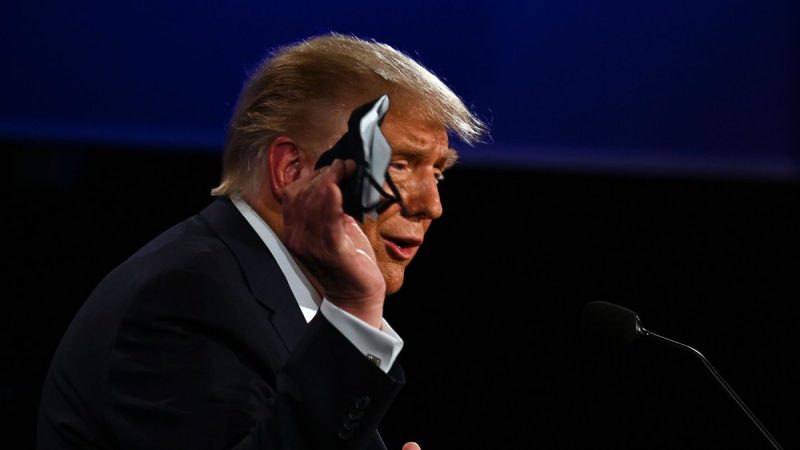Hillary Clinton Is A Patriarch

Hillary Clinton’s campaign all but rests on the former secretary offering herself as the feminist hero, here at last to plant the first flag for women at 1600 Pennsylvania Avenue. However, as many voters (particularly those supporting a certain wild-haired civil rights activist-cum-presidential hopeful, but we’re not here to talk about him) have picked up on, this image the Clinton campaign proffers is simply not genuine. Rather, Clinton’s “trail-blazing woman” act is a classic example of co-opting of the agenda of the powerless by the powerful to quiet discord (and discourse, outside of the pre-approved conversation). By offering us gender as a sticking point in the Democratic race, Clinton’s campaign is more or less successfully deploying a smoke bomb that keeps the really dangerous (to the powerful) conversation of class interest on hold. And unfortunately, even many smart feminists and intelligent people are completely falling for it.
Now, first off, I hope it’s obvious to anyone who gives the matter some thought that in the same way that all men are not patriarchs simply for being male; women are not excluded from being patriarchs simply for being female. This is a question of allegiance to a particular ideology of exploitation and distribution, and a question of bolstering a system of power currently expressed as neoliberalism and austerity economics. It is not simply a question of gender or of individuals, to pretend it was would be absurdly reductionist. Let’s be clear that this is about institutional patriarchy; as Alan G. Johnson of U-mass Amherst phrased it: (patriarchy is) “an It, not a he, a them or an us”.
Another important distinction to make here is that when discussing politics we often commit a kind of fallacy of composition, wherein we confuse to some extent the person with the office, or their policies with their personal beliefs; or equivocating their individual struggle or gender or race to a broader abstraction of struggle, gender or race. Certainly the point is not to say that Hillary Clinton as an individual is not a feminist (probably she at least sincerely believes she is; I don’t know her, and neither do you), or to say that it isn’t completely sexist when she’s told to smile more, or sound “less angry” (it is), or that she has not, in her personal capacity, shattered glass ceilings. But this article is not about that Hillary.
When we are talking at the level of national discourse, we are actually talking about abstractions of power, race, gender, employment… the list goes on. Yet, we often insist on confusing the individual, micro-level issue with the abstract political macro-level one. So let’s be clear: there is a sharp divide between Hillary Clinton, the woman with a successful public career, the mother and grandmother and lawyer who broke down barriers in her time; and the abstract of Hillary Clinton, which is the one we vote for: the presidential candidate who for the purposes of public access is an amalgamated figure, composed of a particular professional history, a particular voting record and bundle of policies and in a public capacity. That Hillary is a Patriarch.
How could that be the case? Well, first, yes — the argument can absolutely be made that Clinton is successful and competent at navigating the objectives and values of the dominant political-economic agenda, what she calls “getting things done”. The issue with “getting things done” is that Clinton has consistently defined her success and competence by how well she has conformed to, and reinforced, the expectations of the system as it exists currently – rather than standing up to it, challenging its fundamental basis, she instead works hard to preserve a core neoliberalism (such a proclivity for war, constantly “evolving” on issues such as gay marriage in response to political stimuli, and a tendency to support corporate interests vis-à-vis advocating to keep wages low and prisons full), all while paying lip-service to feminist concerns at the individual level. “Getting things done” is the large-scale equivalent to feminist progress of “just taking” a sexist joke or “just ignoring” the fact that your male coworkers constantly interrupt you or “just getting paid” a little bit less so that we can all continue peacefully down this road with minimal conflict. The brutal truth is this: Anyone genuinely here to further the interests and rights of those left out of the big conversation, would not brag about being so good at working in a broken system when their job should really be to disrupt it.
The fact is that while most feminists would (hopefully) agree that the status-quo is fundamentally patriarchal and hurts women; few of us in the west seem to be responding to these issues in the abstract. Rather we are intent on focusing our outrage not at systems or mechanisms that maintain these power structures but at the individual offenders, while we lob accolades at warm fuzzy examples of relatively privileged western (and usually, white) feminism. But we do all of his within the parameters defined for us, unless we commit to questioning how and why power is distributed through cultural and economic means – and the opportunity to ask those questions are more in Clinton’s court than anybody’s, yet she does not question them.
She is not really here to disrupt. Clinton plays into this cultural tendency of shallow outrage and limiting feminism to a sort of navel-gazing “don’t hold me back!” sentiment like a champ, working hard to conflate the individual struggle with the global one. It’s time we get smart to it. Because in the social abstract, there is effectively no me, only we. While it’s true that Clinton is personally facing obstacles that are part of being a woman trying to win a game designed for men to play; it would be a high cost indeed for every woman to pay the price of righting Hillary Clinton’s personal injustice at the expense of maintaining a status-quo that hurts us all.






